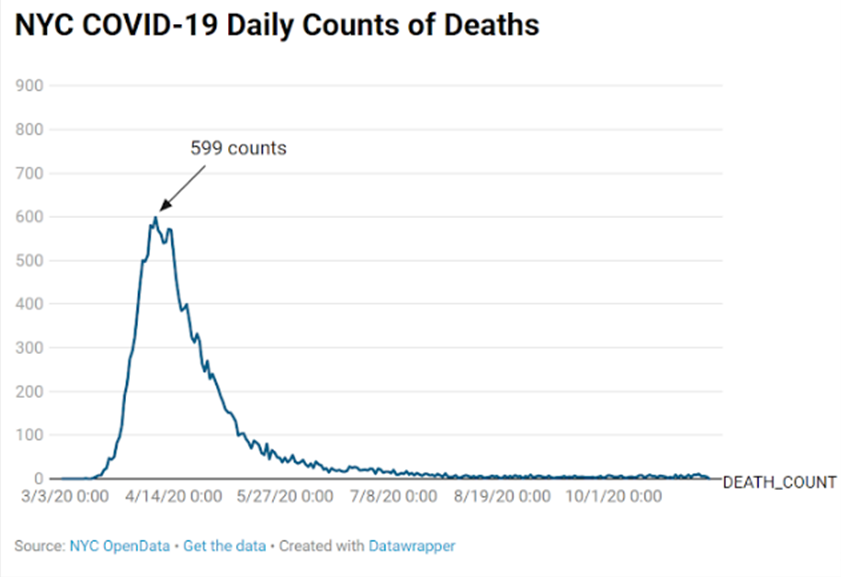
Population Health Informatics Program | February 2022

Senior Associate Dean
Student and Academic Affairs
Message
Welcome new and current students to the Master of Population Health Informatics program for the Spring 2022 semester! We are here to continue supporting you on your academic and professional journey. As this semester starts, I wish you luck in your classes and for those of you doing fieldwork look forward to helping you scale your ideas. Among other news, I also want to thank the new PHIIRE executive committee for taking the lead for the Spring 2022 semester, looking forward to seeing the events you host for our students.
Table of Contents
- Save the Date
- Informatics News
- Research Highlight
- Global Health Informatics Tool
- Student Spotlight Series
- PHIIRE Club
Up-Coming PHI Talks for Which You Should Save the Date
Workforce Skills and Career Growth Open House
February 16, 2022 | Webinar
HIMSS-SIIM Enterprise Imaging Community Roundtable
February 24, 2022 | Webinar
PHI In The News
The aim of this review is to address emerging challenges that came to light during the pandemic in health care and innovations that enabled us to adapt and continue to care for patients. The pandemic highlighted the need for seismic shifts in care paradigms and technology with considerations related to the digital divide and health literacy for digital health interventions to reach full potential and improve health outcomes. We discuss advances in telemedicine, remote patient monitoring, and emerging wearable technologies. Despite the promise of digital health, we emphasize the importance of addressing its limitations, including interpretation challenges, accuracy of findings, and artificial intelligence–driven algorithms. Finally, we propose a model for optimal implementation of health digital innovations with 5 tenets including data management, data security, digital biomarkers, useful artificial intelligence, and clinical integration. Read More
Mass vaccination campaigns have significantly reduced the COVID-19 burden. However, vaccine hesitancy has posed significant global concerns. The purpose of this study was to determine the characteristics that influence perceptions of COVID-19 vaccine efficacy, acceptability, hesitancy, and decision making to take vaccine among general adult populations in a variety of socioeconomic and cultural contexts. Using a snowball sampling approach, we conducted an online cross-sectional study in 20 countries across four continents from February to May 2021. A total of 10,477 participants were included in the analyses with a mean age of 36±14.3 years. The findings revealed the prevalence of perceptions towards COVID-19 vaccine’s effectiveness (78.8%), acceptance (81.8%), hesitancy (47.2%), and drivers of vaccination decision-making (convenience [73.3%], health providers’ advice [81.8%], and costs [57.0%]). Read More
Highlights
Visual communication strategies are becoming increasingly prevalent for conveying information to health professionals as well as to the general public. The potential of social media for rapid knowledge dissemination using infographics was recognized early in the coronavirus disease (COVID-19) pandemic by health professionals. The purpose of this study was to describe a coalition of health professionals’ approach to developing infographics about COVID-19 vaccines and the reach and engagement of those infographics when shared through social media. Infographics were created by a core team within the coalition following a stepwise approach. Each underwent a multistep review process, readability evaluation, and translation into Spanish. Infographics were then shared through multiple social media platforms. They were grouped into 1 of 3 categories for this analysis: COVID-19 vaccine series, myth debunkers, or other. All infographics had greater outreach, impressions, and engagement on Twitter than they did on other platforms. Read More
Global Health Informatics Tool

Data Wrapper is a free data tool to help everyone create charts, maps and tables with no coding or design skills required. Below you will some visualizations of NYC COVID-19 daily cases, hospitalizations, and deaths at the start of the pandemic in March 2020.

Figure 1. NYC temporal trends regarding COVID-19 daily counts of cases from March through September.

Figure 2. Temporal trends regarding COVID-19 related hospitalizations in NYC from March through October.

Figure 3. Temporal trends regarding COVID-19 related deaths in NYC from March through October.
Interested in submitting your own visualizations, email rafaela.villacres63@sphmail.cuny.edu.
**Visualizations generated via Datawrapper for EPID 634
Student Recognitions
Alumni Spotlight

Congratulations to Rafaela Villacres, MS Population Health Informatic Spring 2021 graduate, for starting her new position at NYC Health and Hospitals as a clinical business analyst. She is currently working for the vaccine outreach team in support of the T2 initiative (Test and Trace). She uses SQL and excel, skills she developed in the EPID 700 (PHI fieldwork class). The Department of Health and Mental Hygiene, in collaboration with other city institutions, acted in concerted response with NYC’s Test and Trace (T2) team when the COVID-19 vaccines became available in early 2021. The T2 team began a concentrated phone outreach effort to connect New Yorkers across all 5 boroughs to vaccine education and appointments. She works with data provided by the Department of Mental Health and Hygiene (DOMH), Citizen Immunization Registry (CIR), Department of Aging (DFTA), and voter files for the state of New York. She creates queries and visualizations that serve to provide insights into the successes and gaps of the vaccine campaigns to inform public policy changes and improve outreach efforts. Through the following, stakeholders, public health professionals, policymakers, and the public can have access to real-time population health data to assess vaccine access, uptake, hesitancy, and outcomes.
Congratulations to Rafaela Villacres!
Student Spotlight

Ghazal Khaqan is in her last semester of the MS Population Health Informatics Program at CUNY SPH. She is currently serving as the vice president of the PHIIRE Club for the Spring 2022 semester.
“I found out about the PopHI program after I graduated with a bachelor’s in biology in 2020. I was interested in enrolling in this program not only because I wanted to switch my field, but also because I found out that I am a lot more interested in the informatics side of public health. My interest in public health was sparked after I completed an internship with the NYC Department of Health and Mental Hygiene during my junior year of college.
Currently, I am working as a Resource Navigator with the Research Foundation at CUNY, and I help New Yorkers who are under quarantine, isolate safely by helping them access resources for food, medication, health insurance, and many more. Shortly after beginning this master’s program, I have also worked as a Student Food Navigator with Swipe Out Hunger, where I helped CUNY students apply for SNAP (and other benefit programs) and helped them access additional food resources provided through their neighborhood/community and campuses. While I do not have work experience directly in the field, in the future I am interested in working with mHealth apps and their development.”
Population Health Informatics Innovation, Research & Education
PHIIRE Club
We’re excited to announce the PHIIRE Executive Council for the
Spring 2022 Semester!!
President: Sadaf Ahmad
Vice President: Ghazal Khaqan
Treasurer: Melissa Ditmore
PHIIRE Ambassador: Rafaela Villacres
President
“Welcome to the Spring 2022 semester. I encourage you to join the club and participate in the upcoming events that we have lined up. More details will be shared soon. Hope you all have a successful semester!”- Sadaf
Vice President
“Welcome to PopHI! I encourage you all to join the PHIIRE club and participate in our events not only so we all can learn new things from each other but also have fun at the same time!” – Ghazal
Treasurer
“Everyone interested in population health informatics is welcome to all PHIIRE club events. Come for networking, stay for camaraderie!” – Melissa
Ambassador
I want to thank the new PHIIRE Executive Council for continuing this initiative that was started in Spring 2021. It’s going to be a year in March that the PHIIRE Club was founded so I encourage all new and current population health informatic students to play their part in supporting the club!! I wish you all success in this upcoming semester and look forward to working with you to scale the PHIIRE club and the population health informatics program. To those of you graduating this semester, best of luck and I look forward to you participating as an alumni ambassador! – Rafaela
There are two main events planned for the Spring semester. We’re planning on hosting a speaker series where we bring in the new PHI faculty to share their experiences in the field of population health informatics. Please stay tuned for that! This is an opportunity to come with questions regarding career opportunities, professional development organizations, Ph.D. programs, among others. If you have any questions, please email phiireclub@gmail.com, if you’re interested in learning about the PHIIRE Club and how you can get involved in the club’s activities.
Please Stay Tuned for Updates!
Join us
- To submit your contributions to this newsletter, contact rafaela.villacres63@sphmail.cuny.edu
- Submit content here!
- To join the PHIIRE Club, contact phiireclub@gmail.com
- Visit Our Website
- Join the PHIIRE Club



